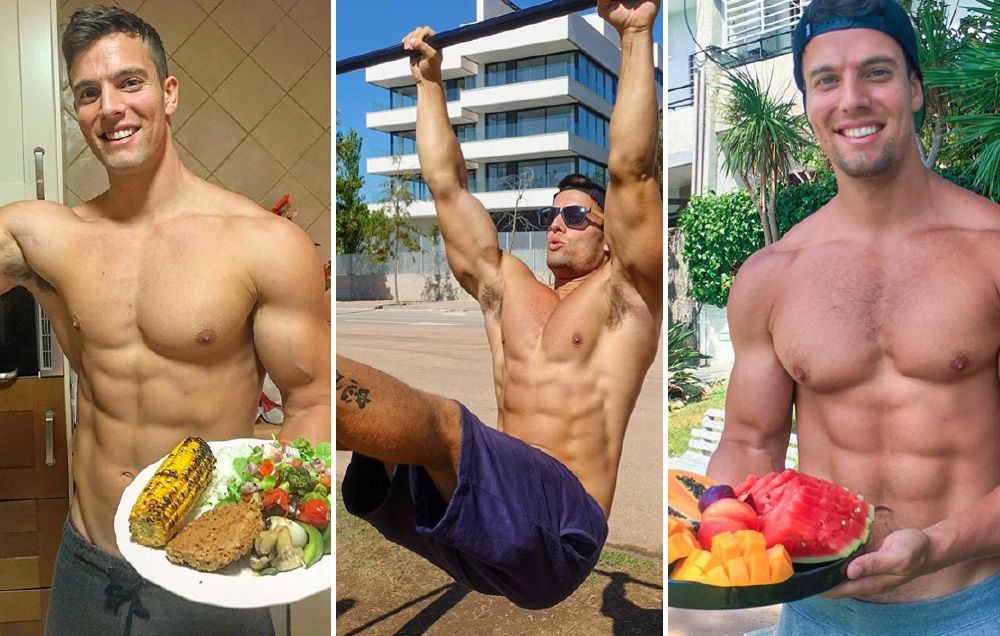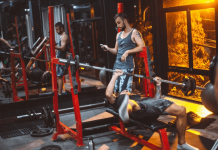When you spend some time in any hardcore gym, one thing you shall see is the huge crowds of women and men carrying their protein shakes and their Tupperware containers filled with food ready to be eaten after every 3-4 hours.
Now, most people believe that high intakes of protein are synonymous with weight training, but the truth is that you really do not need large amounts of protein in order to build muscle. The misconception about protein and bodybuilding is that people believe they must take 1 gram of protein per pound of their body weight.
This means that you should take 2.2 grams of protein for each kilogram of your weight, and this intake has been the perceived minimum for increasing muscle size and strength. This is quite a lot of food, and if you think about it critically, someone is supposed to eat around 6 chicken breasts a day, or 50 egg whites just to meet their required amount of protein.

Protein and Muscle Building
The process of increasing muscle size is a relatively slow process and one that requires successive periods filled with positive protein balance and sufficient and intensive training.
Skeletal muscle is actually made of protein-stores filled with Amino Acids – these are molecular building blocks for protein. They act as reservoirs for energy and nitrogen which help you survive periods of starvation, disease, and injury.
This skeletal muscle actually accounts for more than 40% of your body’s total protein stores and these proteins are usually in a state of flux. They are usually synthesized and degraded through an ongoing state of turnover.
Additionally, their role is to work as the main storage pool for amino acids.
The Nitrogen Balance
Nitrogen is the main component of Amino acids and therefore, nitrogen going in and coming out of your body has commonly been used as the main indicator for protein metabolism. It is also used to determine whether or not your body is an anabolic or a catabolic state.
Increased growth and protein synthesis are both correlated with a positive nitrogen balance. When protein degradation outpaces protein synthesis, there is a negative nitrogen balance in the environment.
How Much Protein Do You Actually Need?
The Academy of Nutrition and Dietetics claims that bodybuilders are supposed to eat between 1.2 and 1.7 grams of protein per kilogram of weight each day and not the earlier stated 2.2 grams per kilogram.
For example, if you are a bodybuilder, your aim should be for around 1.3 to 147 grams of protein daily. Lean protein is the best as it contains less saturated fat. Consider these protein sources for a successful bodybuilding diet: skinless chicken breasts, ground turkey, ground beef, salmon, halibut, yellow tuna, canned tuna, Greek yogurt, navy beans, sardines, lentils, mixed nuts, and peanut butter.
Include Carbohydrates
Additionally, lean protein and carbohydrates are critical components of a bodybuilding diet. The carbohydrates are advantageous since they should be consumed right away following an exercise. This is due to the fact that during an anaerobic weight training session, your body uses all of the stored glycogen to fuel the workout.
When you eat carbohydrates after a workout, you'll be able to replace all of the glucose and this also aids in recovery. The effective carbs you should eat include pasta, oatmeal, sweet potatoes, peas, corn, and whole-wheat bread.

Conclusion
When it comes to bodybuilding, proteins are undoubtedly crucial, but you do not necessarily need to consume a lot of them. a successful bodybuilding diet involves having at least 5—6 small and nutrient-dense meals throughout the day. This also helps to keep your energy levels high and enables your body to have the right amount of nutrients in order to repair any damages to the muscle tissues.
If you also include fasting as part of your diet regimen, ensure to eat the last meal of the day just a few hours before you go to bed. You could also skip the first meal in the day until you have done your cardio workout.







